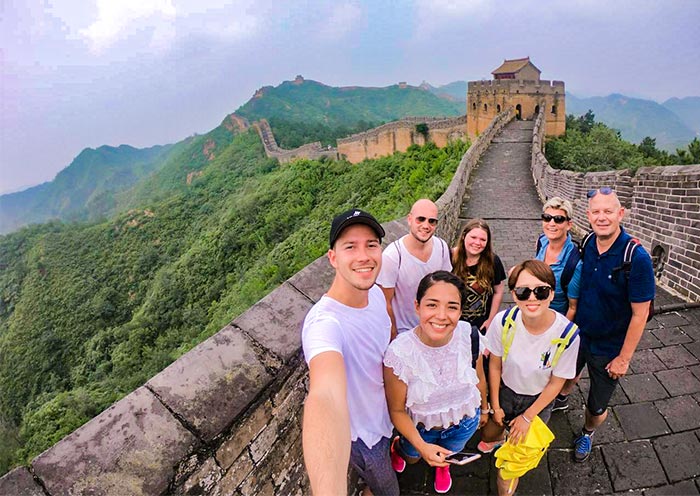Top 10 Tips To Explore Local Cuisines Of China
1. Learn about the eight culinary traditionsTip: Familiarize yourselves with the eight most popular Chinese dishes: Sichuan (Cantonese), Shandong (Jiangsu), Fujian (Fujian), Hunan (Anhui) and Zhejiang. Each one has distinctive flavors recipes, techniques, and ingredients.
Pro Use it to plan your meals based on what you like.
Con: It's difficult to remember the specifics of each dish.
2. Enjoy local cuisine
You should try some of the famous regional dishes, such as Peking Ducks from Beijing or Shanghai as well as Hot Pots at Chengdu.
Pro: You will have a rich cultural experience and authentic dining experiences.
Cons: It might limit your options for exploring different cuisines if you're only in one area.
3. Beware of Regional Flavors
Tip. Sichuan cuisine has a spicy, numbing taste. Cantonese is light, fresh and delicious. Jiangsu's food is delicate sweet and delicate. Choose dishes based on your spice tolerance.
Pro: Helps you avoid eating dishes that might not suit your palate.
Con: Some flavor profiles may be acquired and may require some experimentation.
4. Explore Street Food
Tip: Each city has distinctive street food options such as Jianbing (savory crepes) in Beijing or Roujiamo (Chinese hamburgers) in Xi'an. Try the local snacks.
Pros Street Food is affordable easy to access, and provides glimpses into life in the neighborhood.
Con: Hygiene is sometimes an issue. Pick vendors that have a high turnover.
5. Learn Basic Dining Etiquette
Being aware of Chinese eating habits is crucial. For instance, sharing meals with family and not sticking chopsticks in the rice are all a part of this.
Pros: This shows that you are a loyal steward of local customs while improving the dining experience.
Cons: It can take time to learn and adapt to unfamiliar etiquette.
6. Ask locals for recommendations.
Locals know the top restaurants or dishes are within their area. Do not hesitate to ask locals for their tips.
Cons: You will not be able to locate the hidden treasures.
Cons: Language barriers could make communication difficult.
7. Be open to unfamiliar ingredients
Tip: Regional cuisines may include unusual ingredients, such as bamboo shoots, lotus root, or the sour tofu. Be curious about new foods.
Pros: It will help you gain a better understanding of Chinese food culture.
Cons: Certain meals may not suit your taste or dietary needs.
8. Allowing Dietary Restriction
Tip: Use Mandarin to communicate food allergies and preferences.
Pro: A safer dining experience, that is customized to your individual needs.
Cons: Certain food items can be restricted in their choices for those with specific dietary restrictions.
9. Pair food and regional drinks
Try the local drinks like tea from Fujian or Baijiu in northern China.
Pro: Adds depth and enhances the taste of food.
Con Cons: Baijiu and other strong flavors may not be suitable for everyone.
10. Avoid Overordering
Tip: Chinese dishes are typically served family-style, so you should order conservatively and add more if required.
Pro: Prevents food waste and makes sure you can sample multiple dishes.
Con: It can be tempting to buy excessively due to the range of choices that is available.
The Benefits of Exploring Regional Cuisines In China
Explore a range of tastes and techniques.
Cultural Insights : Develop a better understanding of regional identites and traditions.
The cost of many local meals is reasonable.
Memorable Experiences - Eating the famous dishes of their nation of origin will leave you with unforgettable memories.
Pros and Cons of Exploring Local Cuisines in China
Hygiene concerns Some restaurants and street food outlets may not be up to international sanitation standards.
Language Barriers. Menus as well as the explanations for products may only be accessible in Mandarin.
Certain people may be unable to tolerate certain flavors or textures.
Dietary limitations: In certain areas, vegetarians and vegans and those with allergies to foods may have a difficult time.
If you follow these tips and are a bit adventurous then you'll be able to explore the many delicious regional Chinese dishes, while navigating the difficulties. View the top check out top attractions in this area for more advice including eating in zhengzhou, shenzhen golf club, chinese stone lion the common ornament in chinese traditional architecture, lion forest garden suzhou classical garden, some gifts from china, xi an travel tips, tips for identifying copyright, shopping in nanjing, shopping in shangri la, chinese furniture the development history of chinese furniture and more.

Tips To Tipping The Top 10 Tips For Tipping China
1. Recognizing that Tipping isn't CustomaryTip - Tipping in China isn't commonplace especially in smaller eateries and in local eateries.
Cultural alignment and savings.
Con: It might be strange to travellers who are used tipping in their countries of residence.
2. Make sure to inquire about service fees.
Tip: Upscale restaurants and hotels usually include a service charge (10-15 10%) in the bill, rendering the tipping process unneeded.
Pro: There is no have to include any additional information or calculate.
Con: Service charges may not always be clearly stated.
3. Use Tip Only when Appropriate
Tipping can be expected from hotel employees chauffeurs, tour guides and other staff in areas with lots of tourists or in hotels that cater to international guests.
Pros: A tiny gesture of gratitude can show appreciation for exceptional services.
Cons: Inconsistent practices could result in confusion regarding when to tip.
4. Provide Tips Discreetly
It is recommended to be gentle in your gesture to avoid awkwardness.
Pro: It avoids drawing unnecessary public attention or causing embarrassment.
Pros: A few people may refuse to give you a tip, which can lead to awkward situations.
5. Tipping cash in cash
It is possible to tip cash instead, since many payment methods in China do not allow tipping.
Pro: Cash can be used anyplace and is easy to obtain.
Con: It requires carrying small denominations of money, which can be inconvenient.
6. Tips for Tourist-Oriented Businesses
Tips: In places that are frequented by Western tourists, tipping might be expected or appreciated, such as at international restaurants, or during guided tours.
Cons: Doesn't conform with Western standards.
Con: Inspires a gradual shift toward tipping despite the fact that it's not necessary.
7. Avoid Tipping Taxi Drivers
Taxi drivers aren't accustomed to being paid tips. If necessary, round the fare to your convenience.
Cons: You will not be able to demonstrate goodwill in keeping with the local culture.
Con: Rounding up can be misinterpreted as a hint in non-tourist locations.
8. Consider Tipping Tour Guides
It is customary to tip your guide and driver during tours for groups or private trips particularly in cities such as Beijing and Shanghai. A small amount (e.g. 50-100 yuan) are usually appreciated.
Pro: Recognizes and rewards the best service.
Con Setting expectations for future visitors to tip more.
9. Avoid Over-Tipping
TIP: If you do decide to tip, a small amount (5-10% or less) is enough. Tips that are large can be viewed as unneeded or excessive.
Pro: It prevents the user from overspending, or offending your locals.
Pro: Tipping generously can cause you to feel uncomfortable when holding back.
10. Research Ahead of Time
Find out about the customs and practices for tipping before you travel. It's possible to find that certain provinces and businesses catering to international clients have different standards.
You can easily adapt to local customs.
Con: It is important to take the time to research each location or location.
The benefits of tipping in China
Cost savings Tip-free: Not having to tip means less overall costs.
Cultural adaptation is the process of aligning with the traditional ways of life that encourage respect and inclusivity.
Simplicity: Removes the need to calculate or carrying around cash.
Encourage service providers to concentrate on quality rather than suggestions.
Pros and Cons of Tipping in China
Tourists from cultures that are tipped may be unable to adjust.
Unfortunate situations when you give a gratuity the wrong manner could create confusion or discomfort.
Changes in Expectations: Tourism has introduced tipping in certain areas, which has led to inconsistent methods.
Missed gratitude: Tipping could be a means to show your appreciation for a service.
Utilize these suggestions to ensure cultural respect and a memorable dining experience. View the top get details on this famous place for website examples including eating in fuzhou, shopping in tibet, kashgar tour maps, kashgar tour maps, chaotianmen dock%EF%BC%8C a major water transportation hub in chongqing, jiuzhaigou, luoyang peony and wangcheng park, chinese vegetarian food a vegetarians guide in china, shopping in nanjing, litchi park and more.

Comments on “20 New Reasons For Deciding On China Tour Sites”